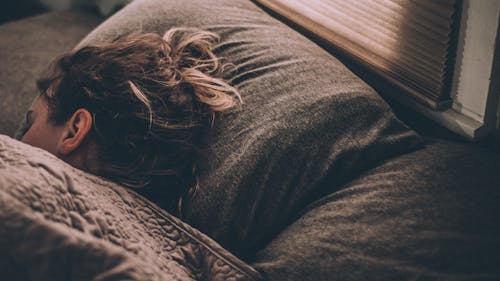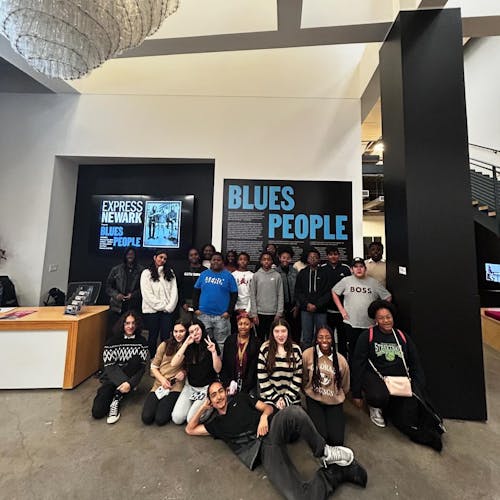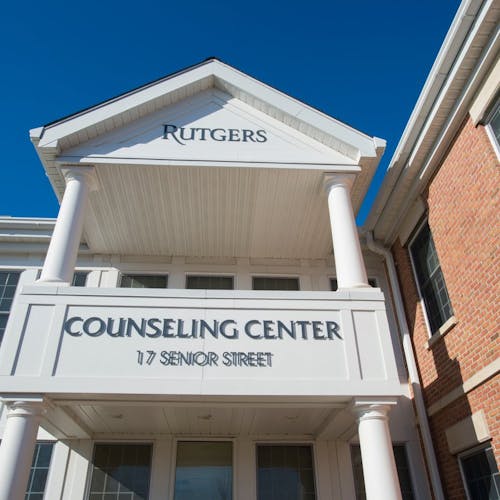Sleep hygiene is crucial for healthy student experience

Every time my grandmother calls me she asks, “Are you eating?” What she never asks is, “Are you getting enough sleep?” We prioritize and worry about so many things in our lives and the lives of others, but how often does the worry of sleep end up on our long list of daily concerns?
We may joke with one another about how little sleep we get, how many naps we take and how we miraculously made it to our morning class come Friday, despite hitting the town Thursday night. College students are notorious for pulling all-nighters, taking naps and hitting the juul right before bed, but all these habits are extremely unhealthy and may be the root of a lot of college struggles. From grades, to mental health, fatigue and relationship troubles — the culprit might just be your sleep habits.
The National Sleep Foundation recently published an article that revolved around the concept of “sleep hygiene.” Sleep hygiene is a variety of different practices and habits that are necessary to have good nighttime sleep quality and full daytime alertness. But the more one reads this article, the more one realizes that a lot of college students don’t follow some basic rules about healthy sleep.
The article mentions many habits that are bad for our sleep, one of which is consuming foods right before bed that are heavy, greasy or spicy. But this is one of the worst and most popular habits among college students. Nighttime is when students notoriously go out to eat together and relish in fast food heaven. For Rutgers students, this means fat sandwiches and the plethora of 24-hour greasy goodness that is on Easton Avenue. Heavy foods cause indigestion, so to sleep better throughout the week, limit the number of times you partake in a grease binge right before bed.
In addition, the article explains that long naps are among the worst things you could do for your sleep hygiene. It’s not uncommon to find students sleeping in odd places around campus, whether on the bus, the library or in class — Rutgers is rife with sleepy, yet creative, students who can make a bed out of anything after a long night of studying.
But napping for more than 20 to 30 minutes will not help you come nighttime. According to the article, “napping does not make up for inadequate nighttime sleep. However, a short nap of 20 to 30 minutes can help to improve mood, alertness and performance.” While there is nothing better than taking a nap after not getting enough shut-eye, falling into the habit of taking hour-long naps will lead to nothing but a bad sleep schedule and a constant cycle of sleepiness and daytime inattentiveness.
Try to plan out times to do homework and study in advance to limit the amount of times you pull an all-nighter. While everyone stay up at one time or another, pulling all-nighters constantly is bad for your health, so take care of yourself.
Furthermore, the article explains that we should avoid nicotine and alcohol before bed. “While alcohol is well-known to help you fall asleep faster, too much close to bedtime can disrupt sleep in the second half of the night as the body begins to process the alcohol,” according to the National Sleep Foundation. In fact, drinking disrupts our sleep in more ways than one, regardless of how quickly it can make us sleepy.
Another article by the National Sleep Foundation found that drinking before bed affects sleep rhythms, interrupts your circadian rhythms, blocks REM sleep, aggravates breathing problems and leads to extra bathroom trips. In addition, “nicotine is a stimulant that can sometimes have a similar effect as caffeine,” according to another article by Totally Wicked. “The nicotine hit you get from e-cigarettes is often more potent than that which you receive from a traditional cigarette.”
Juuling and alcohol consumption are common among students, but bad sleep will catch up to you sooner than later. From moodiness, to high blood pressure and aging, bad sleep, both while lying awake at night and as we’re sleeping, will lead to a multitude of problems, so make sure you are sleeping well more so than you are contributing to your bad sleep hygiene.
The National Sleep Foundation goes on to list more tips and habits that lead to better sleep hygiene like exercising, making sure to have a pleasant sleep environment and establishing a relaxing, regular bedtime, among others.
While we are so caught up in having fun and being young, all while doing well in our classes, we can get so lost in the hustle that we forget to take care of ourselves in the most basic ways. Good sleep is overlooked and we often confuse napping for a good shut-eye. Practice good sleep habits to ensure you are completely taking care of yourself.



